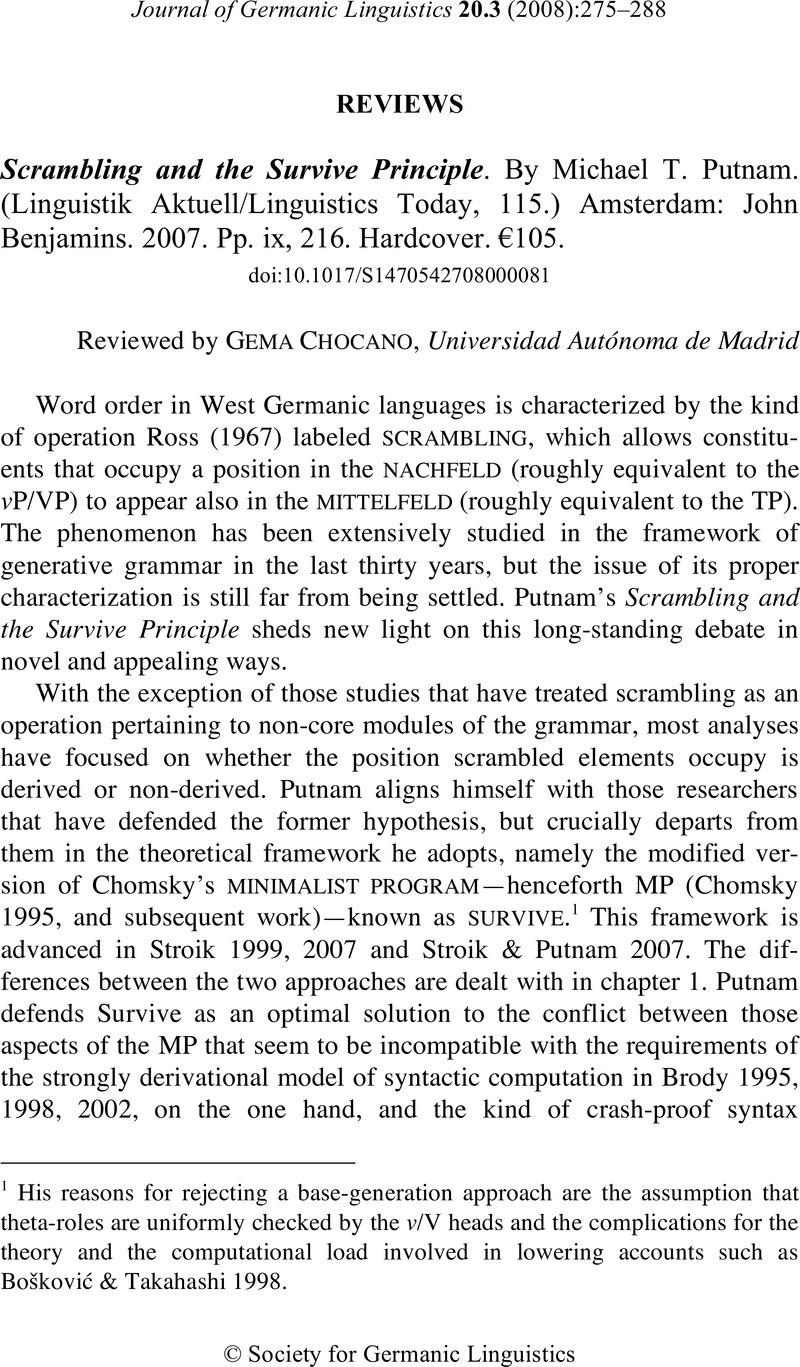Corver, Norbert, &
van Riemsdijk, Henk.
1996. The position of the head and the domain of scrambling.
Typology, prototypes, item orderings, and universals. Proceedings of the LP’96 Conference on Word Order, Prague 1996, ed. by
Palek, B.,
57–
90.
Prague:
Charles University Press.
Google Scholar 